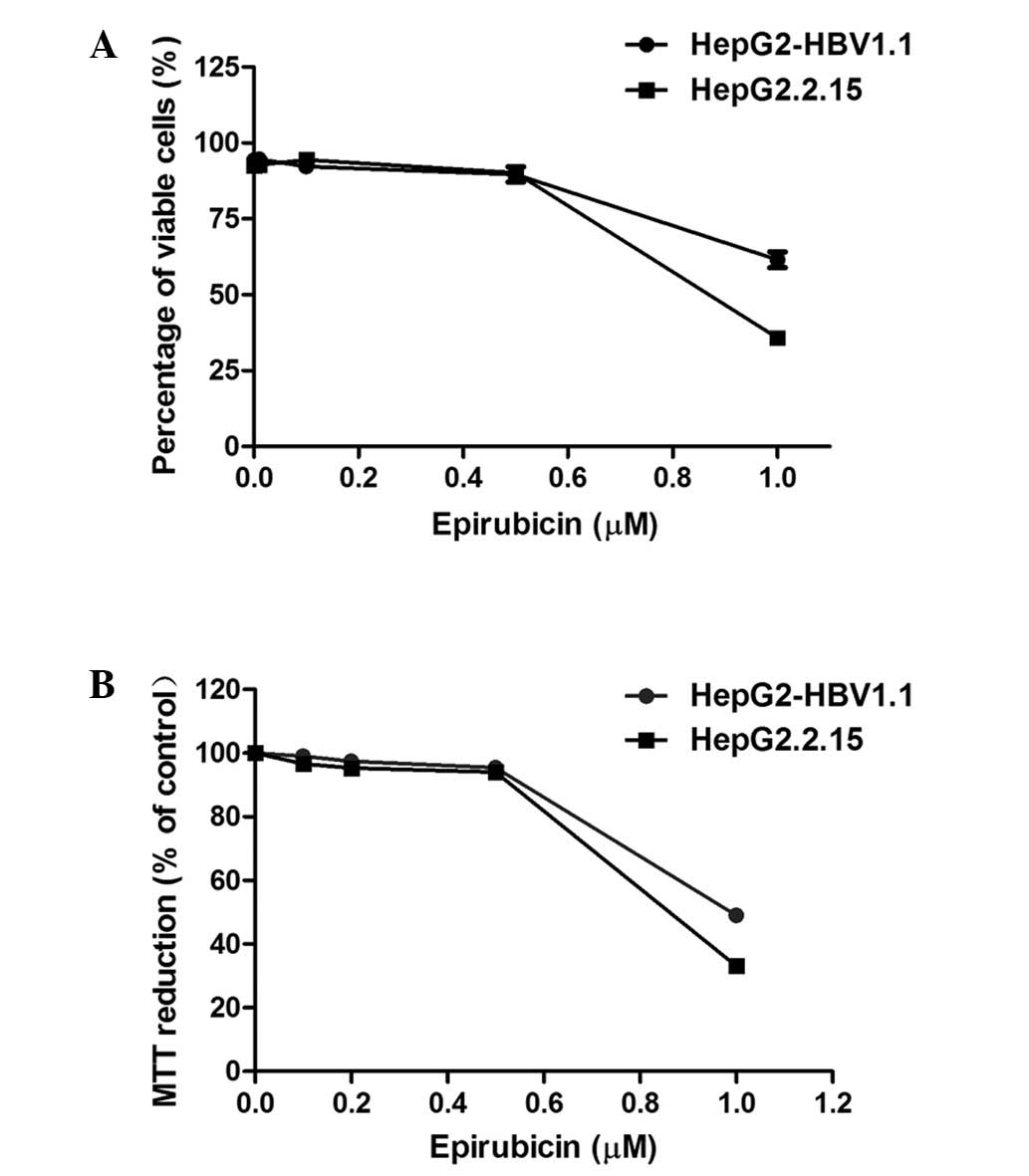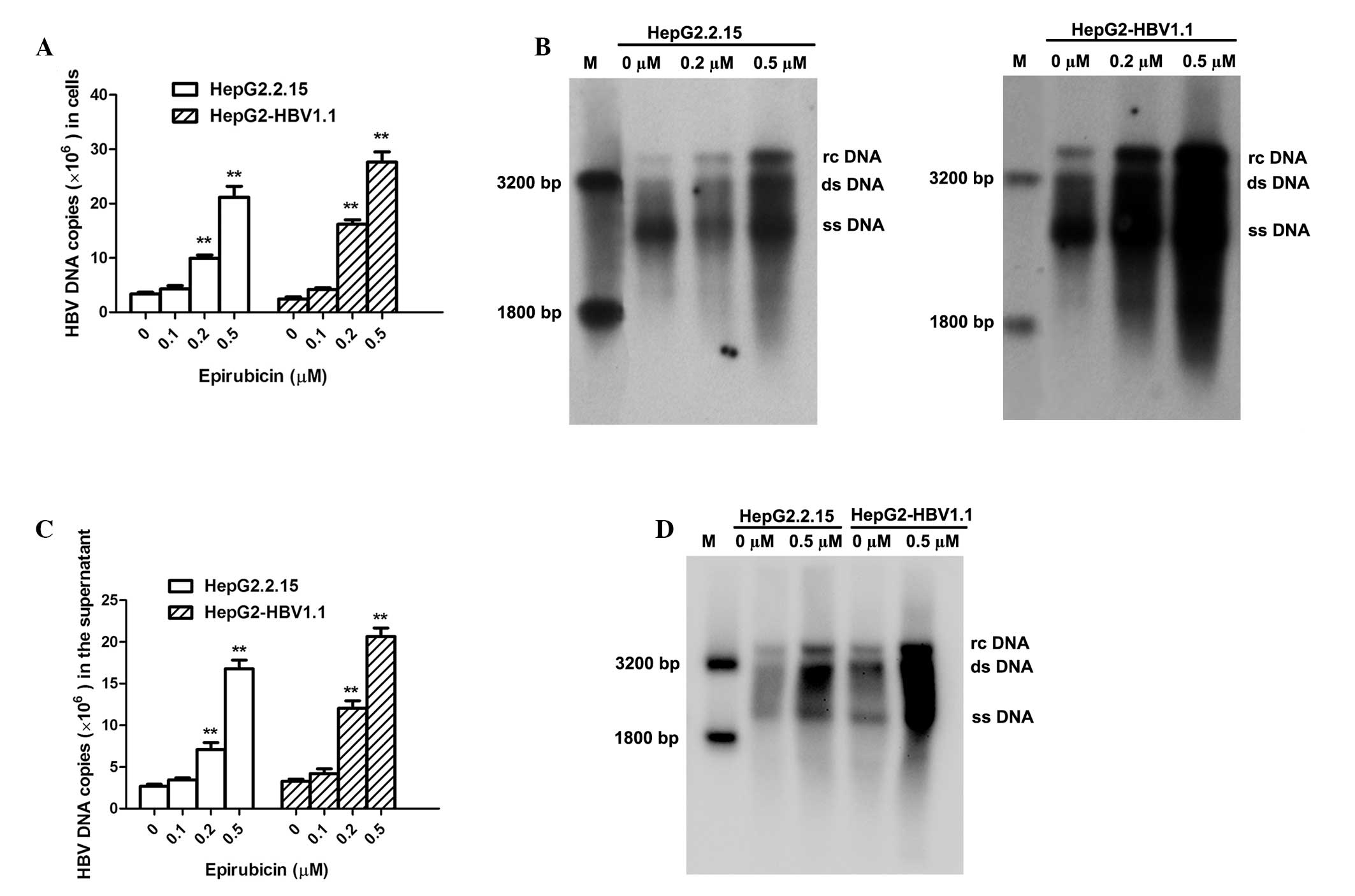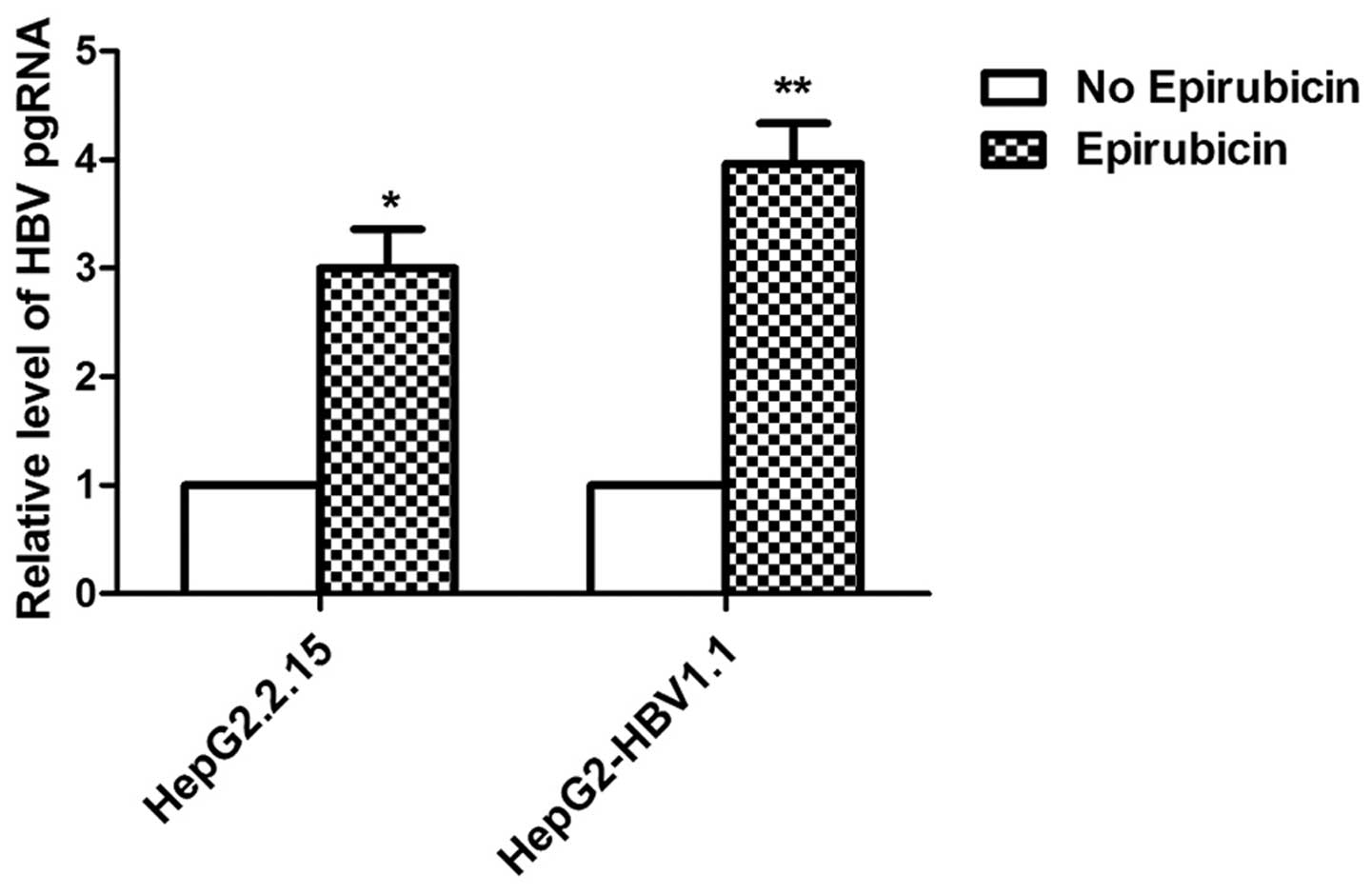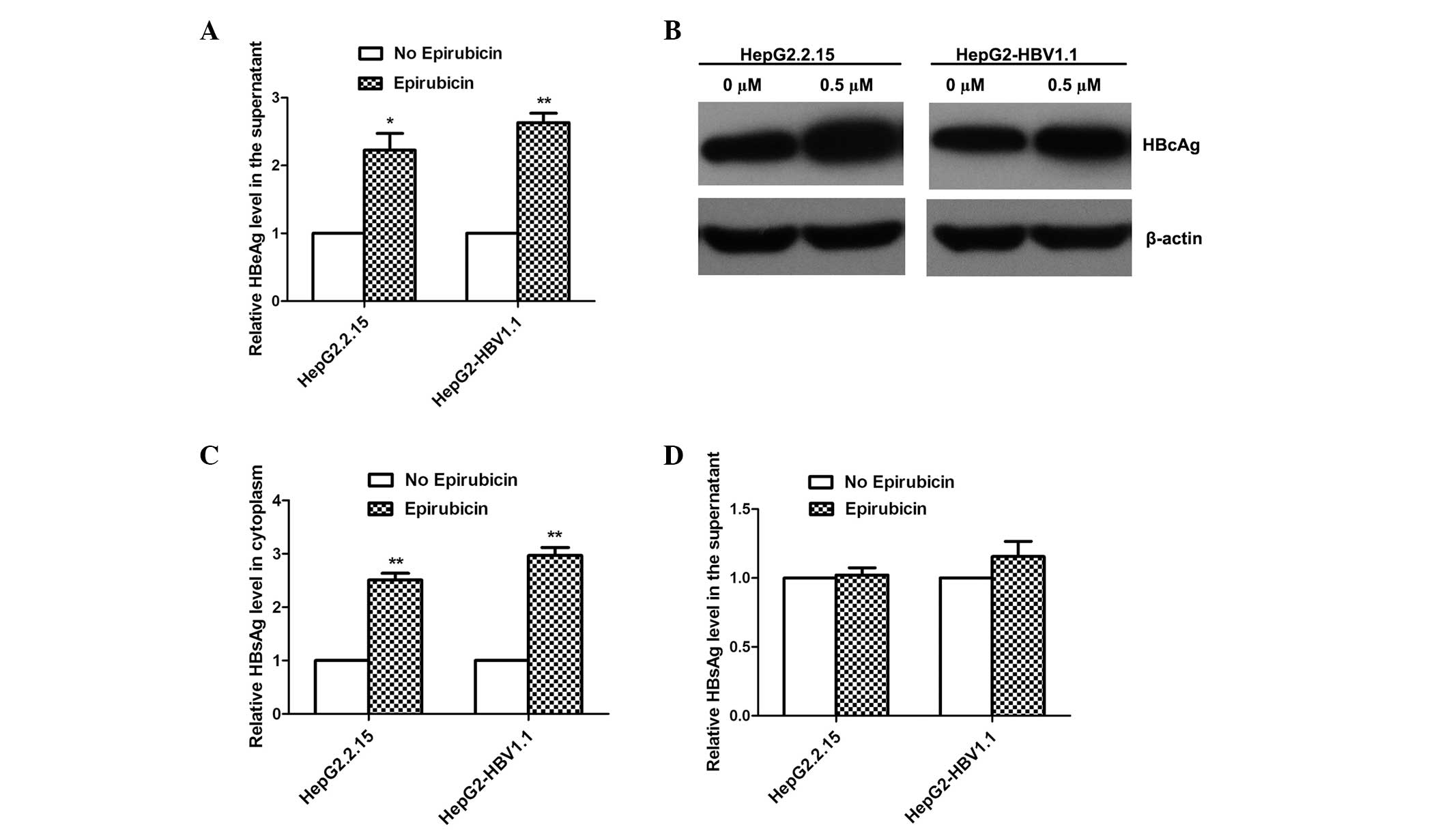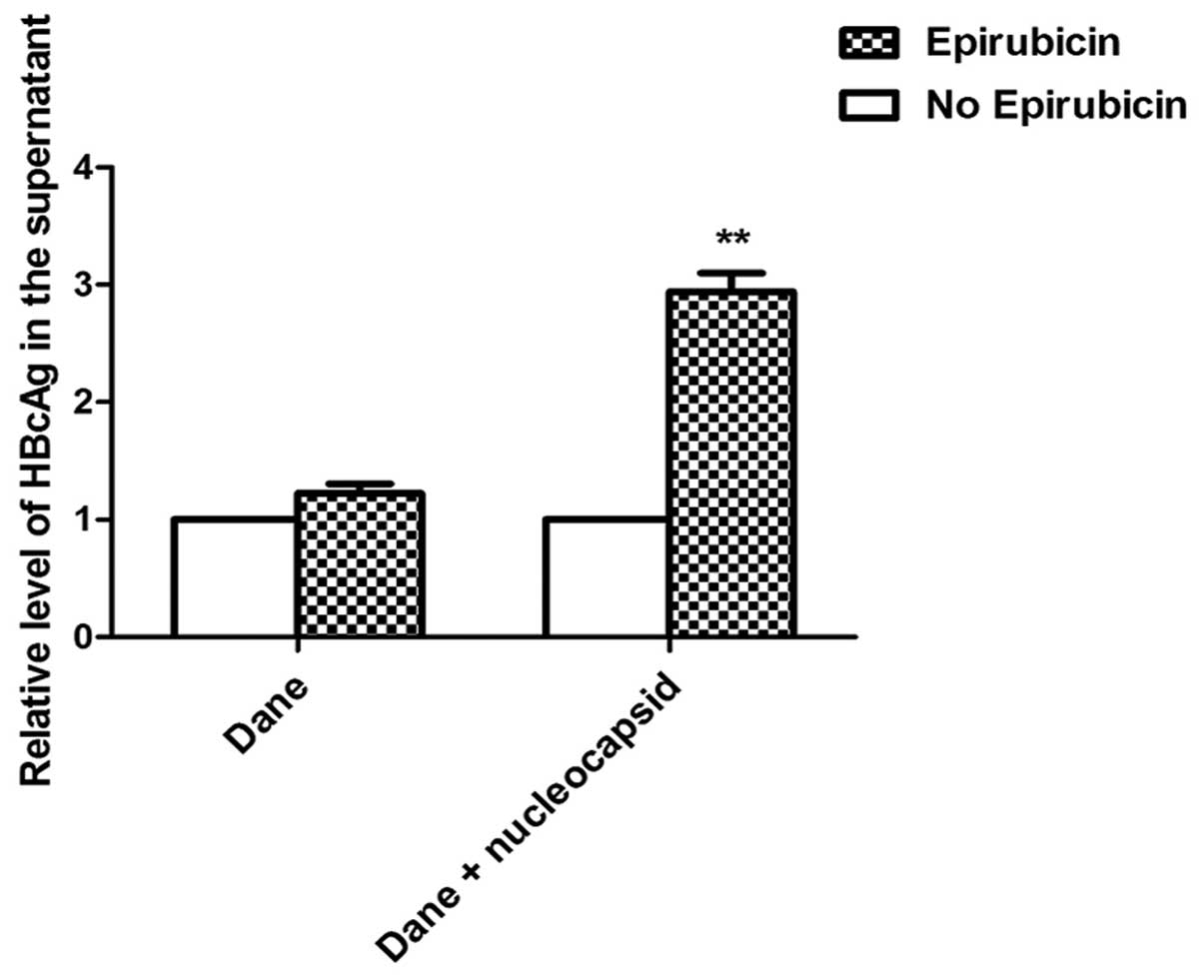|
1
|
Liu CJ, Chen PJ, Chen DS and Kao JH:
Hepatitis B virus reactivation in patients receiving cancer
chemotherapy: natural history, pathogenesis, and management.
Hepatol Int. 7:316–326. 2013. View Article : Google Scholar
|
|
2
|
Lubel JS and Angus PW: Hepatitis B
reactivation in patients receiving cytotoxic chemotherapy:
diagnosis and management. J Gastroenterol Hepatol. 25:864–871.
2010. View Article : Google Scholar : PubMed/NCBI
|
|
3
|
Tur-Kaspa R, Burk RD, Shaul Y and Shafritz
DA: Hepatitis B virus DNA contains a glucocorticoid-responsive
element. Proc Natl Acad Sci USA. 83:1627–1631. 1986. View Article : Google Scholar : PubMed/NCBI
|
|
4
|
Liaw YF: Hepatitis viruses under
immunosuppressive agents. J Gastroenterol Hepatol. 13:14–20. 1998.
View Article : Google Scholar : PubMed/NCBI
|
|
5
|
Cheng AL, Hsiung CA, Su IJ, Chen PJ, Chang
MC, Tsao CJ, Kao WY, Uen WC, Hsu CH, Tien HF, et al; Lymphoma
Committee of Taiwan Cooperative Oncology Group. Steroid-free
chemotherapy decreases risk of hepatitis B virus (HBV) reactivation
in HBV-carriers with lymphoma. Hepatology. 37:1320–1328. 2003.
View Article : Google Scholar : PubMed/NCBI
|
|
6
|
Hwang JP, Vierling JM, Zelenetz AD, Lackey
SC and Loomba R: Hepatitis B virus management to prevent
reactivation after chemotherapy: a review. Support Care Cancer.
20:2999–3008. 2012. View Article : Google Scholar : PubMed/NCBI
|
|
7
|
Nassal M: The arginine-rich domain of the
hepatitis B virus core protein is required for pregenome
encapsidation and productive viral positive-strand DNA synthesis
but not for virus assembly. J Virol. 66:4107–4116. 1992.PubMed/NCBI
|
|
8
|
Muscarella DE and Bloom SE: The
contribution of c-Jun N-terminal kinase activation and subsequent
Bcl-2 phosphorylation to apoptosis induction in human B-cells is
dependent on the mode of action of specific stresses. Toxicol Appl
Pharmacol. 228:93–104. 2008. View Article : Google Scholar : PubMed/NCBI
|
|
9
|
Zhu X, Fu A and Luo KQ: A high-throughput
fluorescence resonance energy transfer (FRET)-based endothelial
cell apoptosis assay and its application for screening vascular
disrupting agents. Biochem Biophys Res Commun. 418:641–646. 2012.
View Article : Google Scholar
|
|
10
|
Sells MA, Chen ML and Acs G: Production of
hepatitis B virus particles in Hep G2 cells transfected with cloned
hepatitis B virus DNA. Proc Natl Acad Sci USA. 84:1005–1009. 1987.
View Article : Google Scholar
|
|
11
|
Zhang Z, Liu X, Chen J, Su H, Luo Q, Ye J,
Tang N, Zhang W, Chen W, Ko BC and Huang A: Heparin sulphate
D-glucosaminyl 3-O-sulfotransferase 3B1 plays a role in HBV
replication. Virology. 406:280–285. 2010. View Article : Google Scholar : PubMed/NCBI
|
|
12
|
Manzano-Alonso ML and Castellano-Tortajada
G: Reactivation of hepatitis B virus infection after cytotoxic
chemotherapy or immunosuppressive therapy. World J Gastroenterol.
17:1531–1537. 2011. View Article : Google Scholar : PubMed/NCBI
|
|
13
|
Dai MS, Wu PF, Shyu RY, Lu JJ and Chao TY:
Hepatitis B virus reactivation in breast cancer patients undergoing
cytotoxic chemotherapy and the role of preemptive lamivudine
administration. Liver Int. 24:540–546. 2004. View Article : Google Scholar
|
|
14
|
Yeo W, Zee B, Zhong S, Chan PK, Wong WL,
Ho WM, Lam KC and Johnson PJ: Comprehensive analysis of risk
factors associating with Hepatitis B virus (HBV) reactivation in
cancer patients undergoing cytotoxic chemotherapy. Br J Cancer.
90:1306–1311. 2004. View Article : Google Scholar : PubMed/NCBI
|
|
15
|
Yeo W, Chan PK, Zhong S, Ho WM, Steinberg
JL, Tam JS, Hui P, Leung NW, Zee B and Johnson PJ: Frequency of
hepatitis B virus reactivation in cancer patients undergoing
cytotoxic chemotherapy: a prospective study of 626 patients with
identification of risk factors. J Med Virol. 62:299–307. 2000.
View Article : Google Scholar
|
|
16
|
Lau JY, Bain VG, Smith HM, Alexander GJ
and Williams R: Modulation of hepatitis B viral antigen expression
by immunosuppressive drugs in primary hepatocyte culture.
Transplantation. 53:894–898. 1992. View Article : Google Scholar : PubMed/NCBI
|
|
17
|
McMillan JS, Shaw T, Angus PW and
Locarnini SA: Effect of immunosuppressive and antiviral agents on
hepatitis B virus replication in vitro. Hepatology. 22:36–43.
1995.PubMed/NCBI
|
|
18
|
Farci P, Diaz G, Chen Z, Govindarajan S,
Tice A, Agulto L, Pittaluga S, Boon D, Yu C, Engle RE, et al: B
cell gene signature with massive intrahepatic production of
antibodies to hepatitis B core antigen in hepatitis B
virus-associated acute liver failure. Proc Natl Acad Sci USA.
107:8766–8771. 2010. View Article : Google Scholar : PubMed/NCBI
|
|
19
|
Wu W, Chen Z, Cheng N, Watts NR, Stahl SJ,
Farci P, Purcell RH, Wingfield PT and Steven AC: Specificity of an
anti-capsid antibody associated with Hepatitis B Virus-related
acute liver failure. J Struct Biol. 181:53–60. 2013. View Article : Google Scholar : PubMed/NCBI
|
|
20
|
Casavant NC, Luo MH, Rosenke K,
Winegardner T, Zurawska A and Fortunato EA: Potential role for p53
in the permissive life cycle of human cytomegalovirus. J Virol.
80:8390–8401. 2006. View Article : Google Scholar : PubMed/NCBI
|
|
21
|
Huang YQ, Wang LW, Yan SN and Gong ZJ:
Effects of cell cycle on telomerase activity and on hepatitis B
virus replication in HepG2 2.2.15 cells. Hepatobiliary Pancreat Dis
Int. 3:543–547. 2004.PubMed/NCBI
|
|
22
|
Wang S, Qiu L, Yan X, Jin W, Wang Y, Chen
L, Wu E, Ye X, Gao GF, Wang F, et al: Loss of microRNA 122
expression in patients with hepatitis B enhances hepatitis B virus
replication through cyclin G(1) -modulated P53 activity.
Hepatology. 55:730–741. 2012. View Article : Google Scholar
|















